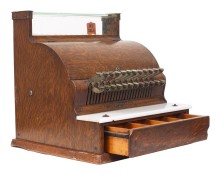Online Retailers Mix Old With New To Attract Customers
July 05, 04
Online jewelers are combining the old with the new in a bid to attract more business – by allowing customers to use old-fashioned payment methods, such as checks and invoices, to pay for Internet purchases.
|
|
Up to now, credit cards have been the most popular and obvious form of online payment.
But that has meant they are losing out on older shoppers who fear online fraud, customers who may not have enough credit for big-ticket items or potential customers who don’t have credit cards.
Diamond retailer Odimo Inc last month began offering "Bill Me Later" invoicing to customers on its web sites diamond.com and ashford.com, promising no payment for 90 days on purchases of more than $250.
Under Bill Me Later, developed by I4 Commerce Inc, a shopper makes a purchase with instant credit rather than a credit card, receives an invoice in the mail later on and pays the bill over a period of time.
In addition, the jewelry retailers offer an installment payment plan without the cost of additional interest charges that allows customers to pay for purchases over a 90-day period without accruing store interest charges. The companies also accept electronic and standard written checks and money orders.
Internet diamond seller Abazias.com also offers payment by personal checks, bank checks, and money orders with the goods mailed as soon as the checks clear, usually 7-10 days.
Industry experts said there has been a strong rise in alternative payments over the past year or so and that is a trend that is likely to continue to grow, especially since one in five adults does not own a credit card, and 10 percent do not have a bank account.
It might only be a marginal market but it is enough to make it worthwhile for Internet retailers.
Market research firm Celent Communications predicts that e-check transactions will total $17.9 billion by next year, or nine percent of e-commerce transactions, up from $7.3 billion, or six percent of e-commerce, last year.
Meanwhile, invoicing services, such as Bill Me Later, will be responsible for $294 million in transactions by 2005, up from $69 million in 2003, according to Celent’s forecasts.
Since I4 Commerce pays vendors within 24 hours of a transaction, in the same way as a credit card company does, retailers have little to lose by offering Bill Me Later.
I4 Commerce carries all the risk and responsibilities associated with the loan and approves and denies loans based on information from credit bureaus and from merchants, which can tag preferred customers.
Bill Me Later users default on about 4 percent of purchases – below the almost 6 percent average for credit card firms, although Celent cautions that may be because it is processing a small number of transactions with select merchants.
